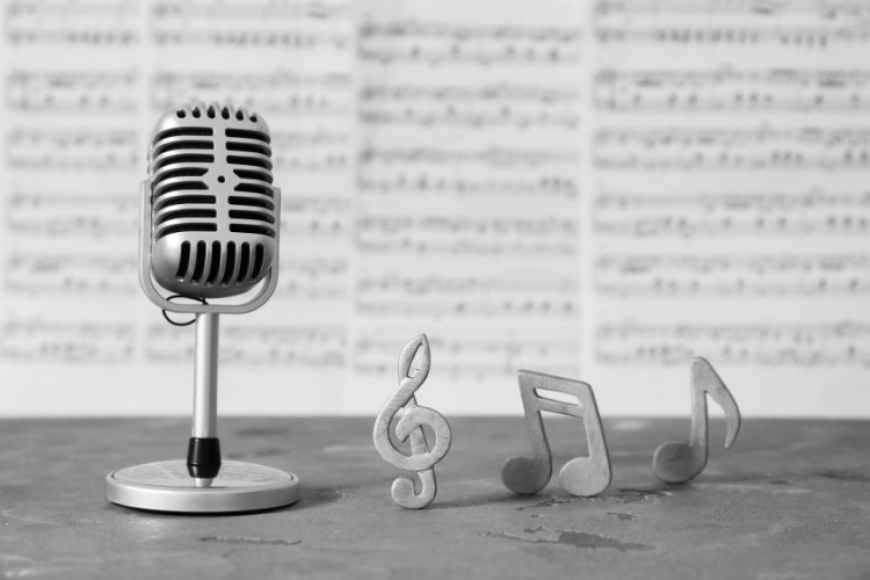Best Practice Technique for Music Students

Victoria Witmer is a professional musician who teaches Violin and Viola lessons online. Find out more on her Lessonface profile.
Recording yourself playing is the number one practice technique I recommend to all my students.
The most important benefit of recording your playing is that it greatly improves your listening skills. You can step back to hear and see your playing in a different context. The nuances of sound, technique, and even tension-free playing will become more defined for you and your audiences.
Consider these four benefits of recording your practice sessions:
1. When practicing, we often envision how we would like to sound. Recording will reveal if the audience will perceive the music in the same way. Is the melody phrased clearly? Was that shift in tune? Should the dynamics be more exaggerated? Are you tensing up as you play? You don’t have to wait for your next lesson to find out!
2. Recording regularly also helps to pinpoint spots or techniques that you can isolate in your next practice session. This is a great way to set concrete practice goals or rehearsal routine, as well as catch any unwanted tendencies early before they become habits.
3. You can make your lessons more productive! I recommend recording at least once mid-week before your lesson. Your teacher’s perspective will become more clear. There are many details you can fix on your own without your teacher’s help. This will save time in the lesson and leave greater opportunity to focus on new pieces or techniques.
4. The microphone also creates the impression of having an audience right there in the practice room. The brain immediately concentrates because it imagines that there is someone listening! This could also reveal what tendencies you have under pressure. For example, do you speed up when approaching a difficult passage?
What to Record
As with anything, we need to use this practice technique in moderation so that is most effective. So, what should we record and how can we use it effectively?
- Scales and etudes are the foundation of our intonation and technique. If we can improve these, everything else will follow. Record yourself playing through a scale or warm-ups without stopping. Listen back right away. As you continue practicing, fix any details you may have noticed.
- Isolate those extra tricky passages in your repertoire. Vary starting points in the music and select short excerpts to work on and record. As with the warm-ups, it helps to record and listen immediately to identify how you can improve these difficult spots.
- Occasionally, play through your entire movement without stopping. Next, play through the whole piece. Not only does this help you pace your energy, but you can also hear how well you transition from one section to another. Taking notes for your next practice session can help you pinpoint the areas that need extra time.
- It may be possible to record your lessons. (Side-note: This is on a case-by-case basis. Some teachers or students feel that the lesson flows more when they are not being recorded.) Listening to your recorded lessons can go a long way to help you absorb the lesson material. If you do not record, take notes to recall more details that you worked on, or start practicing shortly after the lesson.
- Finally, absolutely record your concerts, recitals, and studio classes. It is important to hear how you play when under extra pressure. You may gain an awesome performance recording to use for future applications and auditions!
How to Record
To begin recording, you can start with your smartphone. The audio quality, while not optimal, is enough to get you started while practicing. For performances and audition recordings, however, it would help to invest in a higher quality audio recorder. For video recordings, position the camera from the perspective of your audience. You should be able to see your full range of motion and posture. Once in a while, also try recording from different angles. You might notice something about your posture/technique that you could not see when watching in the mirror or while facing the camera.
One Final Note
Now, the recorder can be very unforgiving. Please do not let this discourage you or make you overly critical. Consider it objective information to help you develop your playing. Learning an instrument is a process, and personal progress is often difficult to measure. Students may not realize the great improvements they have made in the course of one week. Your teacher notices though! Stick with it and you will certainly recognize the difference!
 |
ABOUT VICTORIA
Victoria Witmer is a viola, violin, and chamber music teacher who prioritizes the needs of each individual student. She teaches with the goals of enhancing performance capabilities and inspiring a love of music. Performing around the world, Victoria has been a member of Lincoln Center Stage piano quintets and the Lucerne Festival Academy in Switzerland. She also sat Principal Viola for Sarasota Opera’s Winter Opera Festival. Through participation in numerous festivals and Masterclassses in Europe, Victoria has assimilated the many ideas and diverse methods taught by widely recognized artists. |




